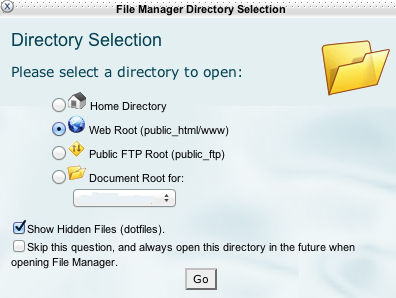 Do you have a backup strategy for your WordPress site?
Do you have a backup strategy for your WordPress site?
If you have never asked the following questions to yourself, then this article is for you…
- What to backup?
- Where to backup?
- How to backup?
This (not so) tiny article discusses the proper way to archive your data, shows the various options available to do the same. If you ever care about your WP powered site, take a minute to read further.
What to backup?
Whenever someone tells you to take a backup (ex: before upgrading WP core), and if you asked this question (to the other person or to yourself), pat yourself on the back. Basically there are two things to backup.
- The database
- The files, including the files not related to WordPress in particular.
The Database
If your host provided you with cPanel, it would also come with phpMyAdmin. Here is a great article on how to take a backup using phpMyAdmin. Depending on what control panel your web host provides, the instructions may vary. If in doubt, search your host’s help center.
The Files – Including those that are not related to WordPress
When it comes to files backup, it is easy to forget the hidden files such as the .htaccess file. It is not just the .htaccess file in the root of your website, but there may be other areas where a .htaccess file may reside. If you use cPanel’s File Manager, then you should check “Show Hidden Files (dotfiles)”. If your web host uses a different control panel, check out its help pages on how to see hidden files. If you use (S)FTP client to do a backup, then you may want to go through the options available for that particular client. Almost all (S)FTP clients have an option to show (and hide) hidden files.
Where to store my archived data?
Keeping a copy of your data is as important as creating it. In short, there are two places to keep the backups…
- On-site backup
- Off-site backup
On-site backups
These can be very useful, if the changes done by you (or your developers) broke the website. It is also the fastest way to create, store and restore the backups.
Off-site backups
You never know if or when something goes wrong with the web host. There are multiple occasions where a web host failed to create or keep a backup. When it comes to backup, please remember to never trust your web host. Never.
How to create a backup?
There are too many ways to create backups of your site. Broadly, there are only two types…
- Using a WordPress plugin
- Without using a WordPress plugin
Plugins
There are too many plugins to choose from. Some are them are even free. If you are looking for commercial plugins, you may consider the following…
- VaultPress
- BackupBuddy
A word of caution while using a plugin – Some plugins only take a backup of the files and some others only take care of the database. Please remember to choose the right plugin/s.
Without a plugin?
Yes, backups of files and the database can be done without using a WordPress plugin or without affecting the performance of your site. It works outside WordPress and is probably more reliable method than using a plugin. But, that’s a post for another day. Stay tuned!

Hello,
Great post… Some of the important things about your WordPress backup is that you store your backups outside your hosting account and that you workout a great backup strategy for automatic backups…
I’ve described a good mix of daily, weekly and monthly backups with auto-deletion of old backup archives in my WordPress Backup article.
On the WordPress Security site you can also download a free, comprehensive WordPress Security Checklist, which will help just about everyone improve their security…
Just my two cents… keep up the great work!
Thanks for the link to your article, Anders. I do agree it’s important to make sure the backups are secure and are done periodically. I visited your site and it’s great to see a site discussing WordPress security in depth.